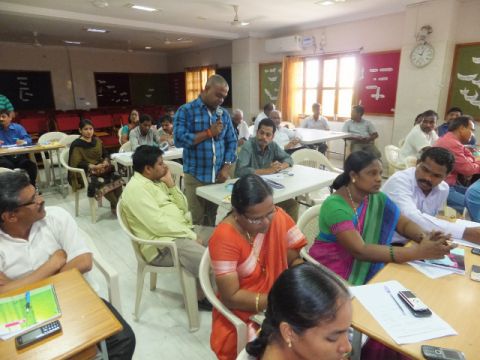
Modern Architects for Rural India (MARI), a Member of Fresh Water Action Network South Asia (FANSA) organized a workshop in which 60 grassroots Civil Society Organisations came together to discuss advocating for the Right to Sanitation.
The workshop, supported by EWP and facilitated by eminent human rights activists, focused on why the poor and most marginalized communities, such as Tribals, Dalits and people living in far-flung areas, have much lower level of access to improved sanitation compared to national coverage figures for rural areas. Many stories were shared on how the right to sanitation is being violated:
- Poor families are being denied vital sanitation services because of a phenomenon called ‘missing toilets’. Missing toilets are when the central government have provided funding for household toilets, the local government have recorded that the toilet has been built, but in reality the toilet was not built and the money was used for other things. The result is that people have to continue to defecate out in the open.
- Toilets in the majority of the schools cannot be used by pupils, because there is a lack of water supply and absolutely no focus on maintaining these toilets.
This workshop comes at a timely point as the Government of India had recently launched the Swacch Barat mission which seeks to end open defecation by 2nd October 2019 as a tribute to Mahatma Gandhi on his 150th Birth Anniversary. For the mission to be achieved it is critical that local communities are empowered to claim their rights and entitlements under SBM, which is critical to the successful implementation of the mission.
The group mapped the opportunities in the newly launched National Sanitation Programme (SBM) for achieving equitable and inclusive sanitation for all and developed a strategy to advocate for the sanitation rights and entitlements of the poor and most marginalized – the first step is ensuring that local community leaders and elected representatives of the local governments are empowered to uphold the interests of the poor and most marginalised in the implementation of the SBM.
The participants have taken this learning back to their communities and have since trained over 300 local leaders on how to ensure that the SBM realises the right to sanitation for the poor and marginalized.
With a team of dedicated local leaders, we are confident that the poor and marginalized communities will see their right to sanitation realized through the SBM.